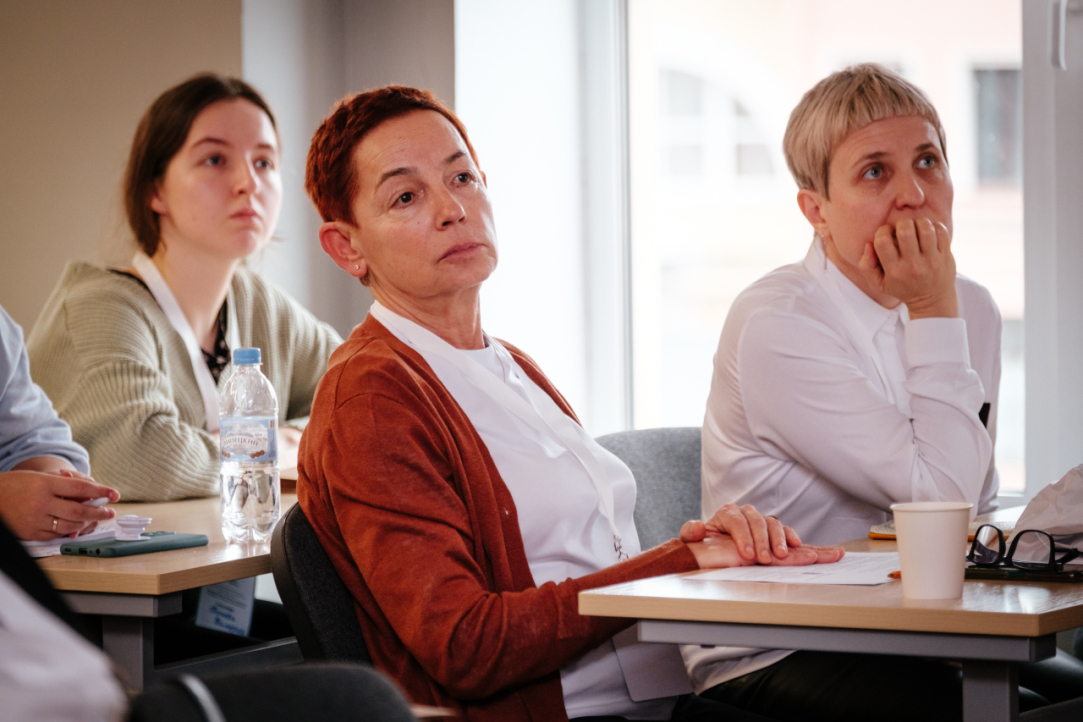Loneliness in the Big City: Resource or Biographical Drama?
Moving to a new city often leads to temporary loneliness and a loss of familiar surroundings. This means that young people who move to a new place must find ways to adapt quickly. Can loneliness become a resourceful state, or does it suppress resourcefulness? Sociologists from HSE University-St Petersburg and Kazan Federal University (KFU) discussed this issue during the seminar 'SOC Up', which was based on research conducted as part of the Mirror Laboratory initiative.

For the third consecutive year, the Centre for Youth Studies and scientists from the Laboratory of Social Research at Kazan Federal University have been studying the migration routes of young people and the difficulties that arise when moving. The project was launched as part of HSE University's 'Mirror Laboratories' initiative and is headed by Elena Omelchenko, Doctor of Sciences in Sociology.
The teams have conducted 61 interviews to date: 31 in St Petersburg and 30 in Kazan. The selection included senior bachelor's and master's students and graduates of HSE University and KFU. The sociologists studied the respondents' biographies, treating them as 'film scripts' summarising similar experiences in several people.
'Researchers often see loneliness as a problem that increases health risks. However, there are other ways to look at this issue,' says Irina Lisovskaya, Research Fellow at the Centre for Youth Studies. However, not all theories consider loneliness to be a negative. Some people may choose loneliness to save energy, while others may prefer to engage only in business communication that helps them to build a successful career. The researchers investigated how this works for non-resident students who moved to St Petersburg and Kazan. They managed to single out several recurring patterns.
Students who moved to St Petersburg often saw new communities as an adventure. They tried to meet as many people as possible in the shortest time and join various university events and student clubs—the more, the merrier. The life paths of such people are very dynamic; moving is a way for them to get out of their comfort zone, which helps them to find themselves.
The stories of some students resembled heroic parables. There were no barriers, solutions to problems arose on their own, and difficulties were treated as challenges. Examples include getting acquainted with one's whole class cohort or dormitory in a day or trying to make friends with active people who have already established themselves.
For some of those who move to St Petersburg, the main difficulty is 'finding your people' in a big city where there are a lot of communities, hobbies and opportunities. In the first two years, the students strive to find those who share their opinions and interests. Such arrivals may try to socialise with one group after another, sometimes ending up disappointed.
In both St Petersburg and Kazan, the students were acutely aware of their otherness. Their experiences also differed, with those in Kazan finding it hard to cope with the feeling that their interests did not correspond to what the city was offering. In such cases, loneliness became a very serious barrier.
However, not all the respondents saw loneliness as a problem—some saw it as a resourceful state. The students consciously chose to make short-term business acquaintances so as not to get distracted by 'useless commotion'. They were not looking for friends in their new city, preferring instead to communicate with close friends remotely. They went only to those events which could be beneficial. Such people try to monetise their experience, so they go to career events or work part time.
'In Kazan, there turned out to be an interesting scenario: young people move here from Moscow and St Petersburg for authentic experiences that are significantly different from what they are used to,' shares Albina Garifzyanova, Associate Professor at the KFU Institute of Philosophy, Social Sciences and Mass Communication. One student from Moscow said that she became calmer in a new place, and that she had enough time to think about herself and her wishes.
For such students, Kazan is a fairy-tale city with an extraordinary culture to be explored. To immerse themselves in another life, they consciously choose loneliness. And if they find any hobbies, they are sure to be unusual. Such hobbies help them to explore the city from different perspectives, including unvarnished ones. Some students become interested in photography this way.
The researchers are planning to participate in the Mirror Laboratories competition again and continue their joint research. The final results of the study will be presented in November. For the next year, they plan to focus on the involvement of rural youth in city and university life, as well as examine ethnocultural scenarios. Updates on the project can be found on the website of the Centre for Youth Studies.

